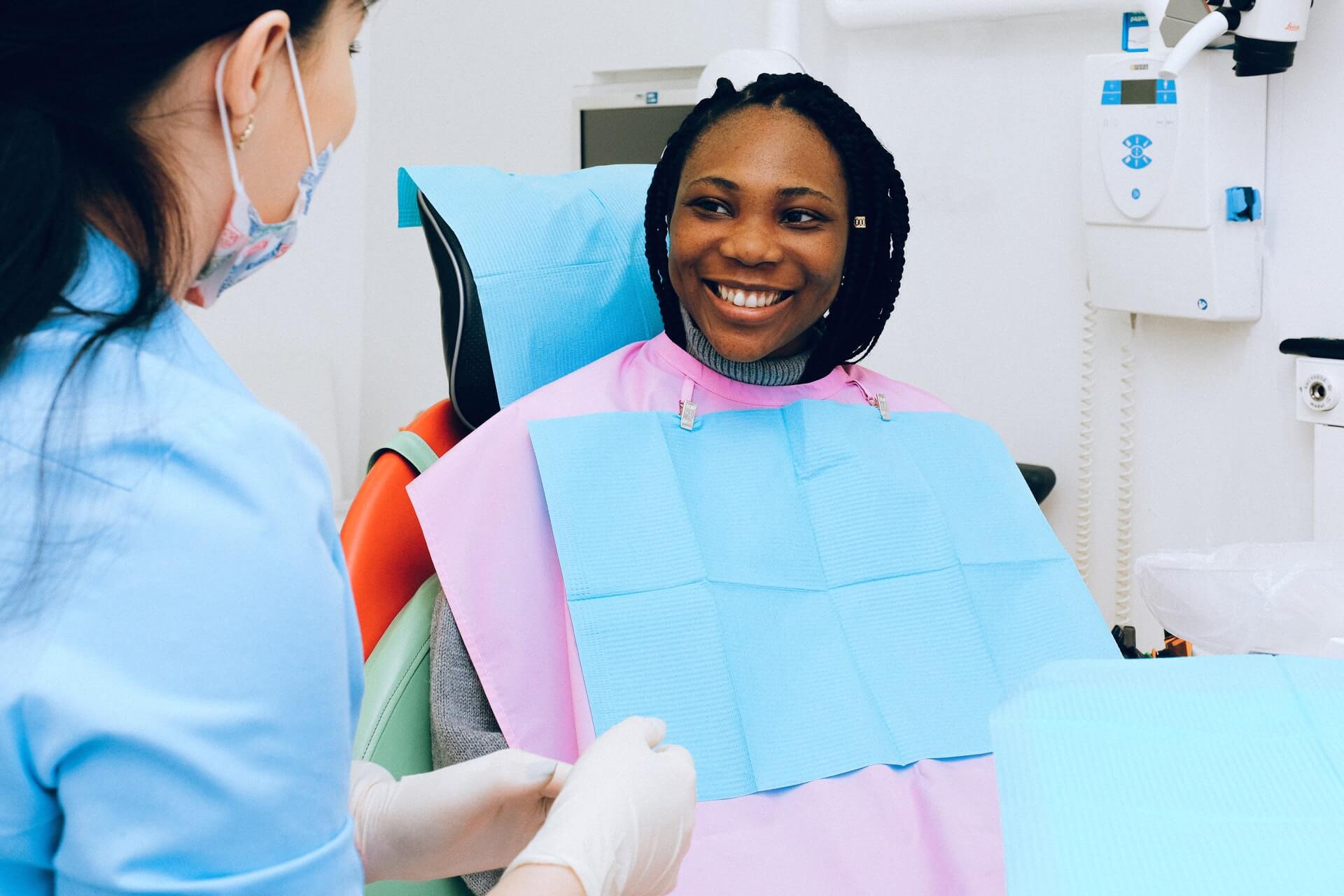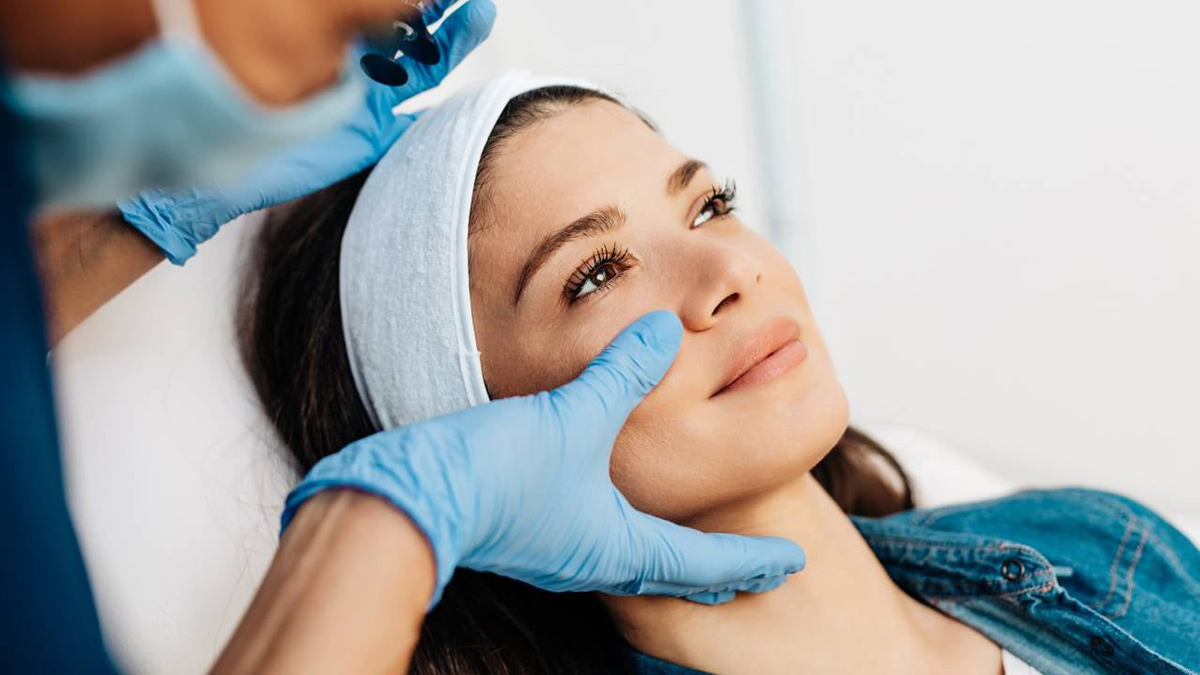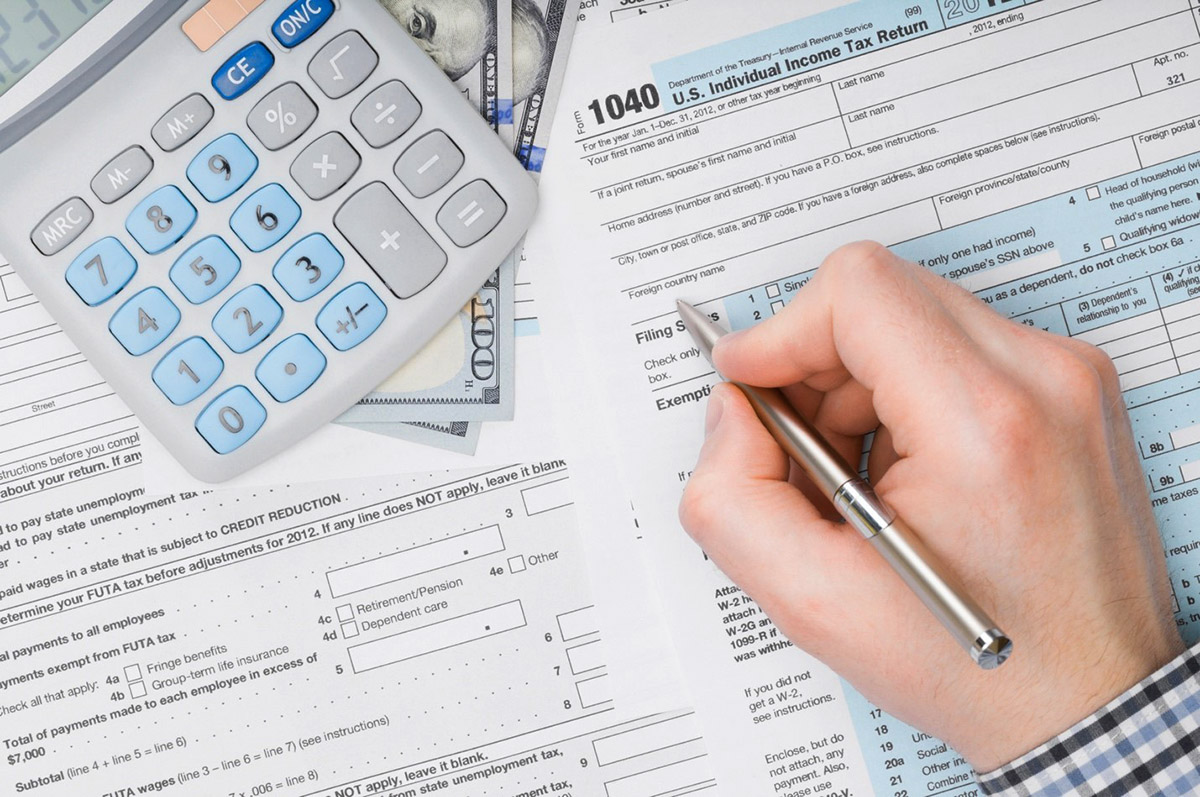

Finance
How To Pay For Plastic Surgery With Bad Credit
Modified: February 21, 2024
Discover how to finance your plastic surgery procedure even with bad credit. Get the funding you need to pay for your desired cosmetic enhancements.
(Many of the links in this article redirect to a specific reviewed product. Your purchase of these products through affiliate links helps to generate commission for LiveWell, at no extra cost. Learn more)
Table of Contents
- Introduction
- Understanding Plastic Surgery Financing
- Options for Paying for Plastic Surgery with Bad Credit
- Applying for Personal Loans
- Using Credit Cards for Plastic Surgery
- Exploring Medical Loans
- Considering Financing Options through the Plastic Surgery Clinic
- Seeking Assistance from Non-profit Organizations
- Improving Credit Score for Better Financing Options
- Conclusion
Introduction
Plastic surgery has become increasingly popular in recent years, as more individuals seek to enhance their physical appearance and boost their self-confidence. However, one major hurdle that many people face when considering plastic surgery is the cost. Plastic surgery procedures can be quite expensive, and not everyone has the financial means to cover the expenses outright. This is where financing options can be a game-changer, providing individuals with the opportunity to pay for their desired procedures over time.
While traditional financing options, such as personal loans and credit cards, are readily available to individuals with good credit scores, those with bad credit may feel challenged to find suitable financing options. However, having bad credit doesn’t mean that you can’t pay for plastic surgery. In fact, there are several alternative financial solutions that can help you fund your cosmetic procedures, even if your credit history is less than perfect.
In this article, we will explore various options for paying for plastic surgery with bad credit. From personal loans to medical loans and assistance from non-profit organizations, we will discuss the different avenues you can pursue to finance your desired cosmetic procedures. Additionally, we will provide tips on how to improve your credit score, which can open up even more financing options for you in the future.
Remember, the decision to undergo plastic surgery is a personal one, and it’s important to carefully consider your options, including the financial aspect. By understanding the available financing alternatives and taking proactive steps to improve your credit, you can make your dream of enhancing your appearance a reality, regardless of your credit history.
Understanding Plastic Surgery Financing
Plastic surgery financing refers to the various methods individuals can use to cover the costs of their desired cosmetic procedures. It involves obtaining financial assistance from external sources such as banks, credit unions, medical loan providers, and even the plastic surgery clinic itself. Understanding the different financing options available can help you make an informed decision about which approach is best suited to your specific circumstances.
It’s important to note that plastic surgery financing is not the same as health insurance coverage. Most health insurance plans only cover medically necessary procedures, while elective cosmetic surgeries are typically considered non-essential and therefore not covered. This means that individuals looking to undergo plastic surgery will need to find alternative financial means to fund their procedures.
When exploring plastic surgery financing options, it’s crucial to consider factors such as interest rates, repayment terms, and any additional fees associated with the financing. Some common methods of financing plastic surgery include personal loans, credit cards, medical loans, financing options offered by the plastic surgery clinic, and seeking assistance from non-profit organizations.
Having bad credit may limit the options available to you, but it doesn’t mean that you’re completely without choices. It’s important to be aware that financing options for individuals with bad credit may come with higher interest rates or stricter repayment terms. However, with careful research and planning, you can still find a financing option that meets your needs and helps you achieve your desired aesthetic goals.
Before committing to any financing option, it’s essential to thoroughly review the terms and conditions, ensuring that you understand the total cost of borrowing and any potential risks. Additionally, it can be beneficial to consult financial advisors or credit counselors who specialize in assisting individuals with bad credit to help you make informed decisions regarding your plastic surgery financing.
Options for Paying for Plastic Surgery with Bad Credit
If you have bad credit and are considering plastic surgery, there are still several options available to help you finance your procedure. While these options may come with higher interest rates or stricter repayment terms, they can provide you with the opportunity to achieve your desired aesthetic goals. Here are some common options for paying for plastic surgery with bad credit:
- Personal Loans: Despite having bad credit, you may still be eligible for a personal loan. Personal loans are typically offered by banks, credit unions, and online lenders. While these loans can come with higher interest rates, they provide a lump sum of money that can be used to cover the cost of your plastic surgery. It’s important to compare rates and terms from different lenders to find the best option for your needs.
- Credit Cards: If you have a credit card, you can potentially use it to finance your plastic surgery procedure. However, keep in mind that credit cards often come with high interest rates, so it’s important to have a plan to pay off the balance as quickly as possible to avoid accruing excessive interest charges. Some credit cards also offer promotional financing options with lower or zero interest for a certain period, which can be beneficial if you can pay off your balance within the promotional period.
- Medical Loans: There are lenders that specifically provide loans for medical expenses, including plastic surgery. These loans are designed to cover the cost of procedures and often offer flexible repayment terms. While interest rates may be higher due to bad credit, medical loans can still be a viable option for financing your plastic surgery.
- Financing Options through the Plastic Surgery Clinic: Many plastic surgery clinics offer financing options to their patients. These options may include in-house financing or partnerships with financing companies. Even with bad credit, you may still have a chance of being approved, as the clinic may be more lenient in their eligibility criteria compared to traditional lenders.
- Seeking Assistance from Non-profit Organizations: There are non-profit organizations that provide financial assistance to individuals in need of medical procedures. These organizations often have specific criteria for eligibility, such as income level or medical necessity. Research and reach out to non-profit organizations in your area that may be able to provide assistance for your plastic surgery.
While these options can help you finance your plastic surgery procedure with bad credit, it’s important to carefully consider the terms, interest rates, and fees associated with each option. Evaluate your financial situation and choose the option that best fits your needs and budget. Additionally, it’s crucial to make your payments on time and work towards improving your credit score to access more favorable financing options in the future.
Applying for Personal Loans
If you have bad credit, applying for a personal loan may still be a viable option to finance your plastic surgery procedure. Personal loans are typically unsecured loans that can be used for various purposes, including medical expenses. Here are some steps to consider when applying for a personal loan with bad credit:
- Evaluate your credit situation: Before applying for a personal loan, it’s important to review your credit report and identify any potential issues or errors. This will allow you to have a better understanding of your creditworthiness and help you prepare for the application process.
- Research lenders: Look for lenders that specialize in providing personal loans to individuals with bad credit. These lenders may have more lenient eligibility criteria and be more willing to work with borrowers who have low credit scores. Compare interest rates, repayment terms, and fees from different lenders to find the most favorable option.
- Provide accurate information: When filling out the loan application, be sure to provide accurate and up-to-date information. This includes your personal details, income, employment history, and any other relevant financial information. Lenders will use this information to assess your eligibility and determine the loan terms.
- Consider a co-signer: If your credit is particularly poor, you may want to consider applying for a personal loan with a co-signer. A co-signer is a person with good credit who agrees to be responsible for the loan if you are unable to make payments. Having a co-signer increases your chances of approval and may even help you secure a lower interest rate.
- Prepare necessary documentation: Gather all the required documentation to support your loan application. This may include recent bank statements, pay stubs, tax returns, and proof of residence. Having these documents readily available can speed up the application process and demonstrate your financial stability to the lender.
- Be prepared for higher interest rates: Since personal loans for individuals with bad credit are considered riskier for lenders, they often come with higher interest rates. It’s important to carefully consider the interest rate and evaluate whether you will be able to comfortably afford the monthly payments.
- Repay the loan responsibly: Once you are approved for a personal loan, it’s crucial to make your monthly payments on time and in full. This not only helps you avoid late payment fees and penalties but also positively impacts your credit score over time. Responsible repayment can also improve your chances of qualifying for better loan options in the future.
Remember, applying for a personal loan with bad credit requires careful consideration and research. It’s essential to choose a reputable lender, assess your own financial situation, and determine if the monthly payments fit within your budget. By taking these steps and being diligent in your financial management, you can secure a personal loan even with bad credit and finance your desired plastic surgery procedure.
Using Credit Cards for Plastic Surgery
Another option for financing your plastic surgery procedure with bad credit is to utilize your credit cards. Credit cards can provide a convenient and flexible way to cover the costs of your cosmetic surgery. Here are some important considerations when using credit cards for plastic surgery:
- Review your credit card terms: Before using your credit card to finance your procedure, it’s important to review your credit card terms and conditions. Take note of the interest rates, repayment terms, and any applicable fees. Some credit cards may offer promotional financing options with lower or zero interest rates for a certain period, which can be advantageous for financing your plastic surgery.
- Check your credit limit: Verify your credit card’s available credit limit to ensure that it can cover the entire cost of your plastic surgery procedure. If your credit limit is relatively low, you may need to consider alternative financing options to fully cover the expenses.
- Consider multiple credit cards: If your credit limit is not sufficient to cover the entire cost, you may consider utilizing multiple credit cards. However, it’s important to keep track of the balances and ensure that you can manage the payments for each card effectively.
- Calculate monthly payments: Determine the monthly payments you will need to make to repay the credit card balance over time. This calculation should include the principal amount as well as any interest charges. Ensure that these monthly payments fit within your budget to avoid unnecessary financial strain.
- Explore balance transfer options: If you have multiple credit cards with high-interest rates, you may consider consolidating your balances through a balance transfer. This involves transferring your credit card debt to a new card with a lower interest rate or a promotional 0% APR period. However, be cautious of balance transfer fees and make sure to read the terms and conditions carefully.
- Create a repayment plan: To avoid high interest charges and lengthy repayment periods, it’s important to have a clear plan to pay off your credit card balance as quickly as possible. Make more than the minimum monthly payments whenever feasible to reduce interest charges and accelerate your debt repayment.
- Monitor your credit utilization: Utilizing a large portion of your available credit limit can negatively impact your credit score. Keep an eye on your credit utilization ratio, which is the ratio of your credit card balances to your credit limits. Aim to keep your credit utilization ratio below 30% to maintain a healthy credit score.
- Budget for unforeseen costs: It’s essential to have a contingency plan in case unexpected costs arise during your plastic surgery journey. This can include additional medical expenses, follow-up procedures, or other incidentals. Having a financial buffer helps you avoid further debt and financial stress.
Using credit cards for plastic surgery can provide convenience and flexibility, but it’s important to carefully manage your spending and repayment. Be mindful of high-interest rates, monitor your credit utilization, and have a clear repayment plan in place. By utilizing credit cards responsibly, you can finance your plastic surgery procedure despite having bad credit.
Exploring Medical Loans
If you have bad credit and need financing for your plastic surgery procedure, one option you may consider is obtaining a medical loan. Medical loans are specifically designed to cover medical expenses, including elective cosmetic surgeries. Here’s what you need to know when exploring medical loans:
- Specialized loan providers: There are lenders that specialize in providing medical loans to individuals seeking funding for their healthcare needs. These lenders understand the unique nature of medical expenses and may be more willing to work with borrowers who have bad credit.
- Flexible repayment terms: Medical loans often come with flexible repayment terms, allowing you to choose a loan duration that fits within your budget. You can find loans with varying repayment periods, which can range from a few months to several years.
- Interest rates: Due to bad credit, you may be offered medical loans with higher interest rates than those available to individuals with good credit. Be sure to compare interest rates from different lenders to find the most competitive option, as even a slight difference in interest rates can significantly impact the overall cost of the loan.
- Loan amounts: The loan amount you can qualify for will depend on several factors, including your creditworthiness, income, and the specific lender’s policies. It’s important to estimate the total cost of your plastic surgery procedure and consider whether the loan amount you can secure will cover the expenses.
- Collateral requirements: Medical loans can either be secured or unsecured. Secured loans require collateral, such as a valuable asset, which gives the lender a form of security in case of default. Unsecured loans do not require collateral but often come with higher interest rates or stricter eligibility criteria.
- Loan application process: When applying for a medical loan, you will need to provide the lender with personal and financial information. This may include proof of identity, income verification, and details about the specific medical procedure you plan to have.
- Consider loan comparison platforms: Utilize loan comparison platforms to evaluate and compare different medical loan options. These platforms allow you to input your information and receive personalized loan offers from multiple lenders, streamlining the process of finding the best loan for your needs.
- Pay attention to the terms and conditions: Before committing to a medical loan, carefully read and understand the terms and conditions. Take note of any fees, early repayment penalties, or other potential costs associated with the loan.
Exploring medical loans can be a valuable option for financing your plastic surgery procedure, even with bad credit. Compare different lenders, review the terms and conditions, and consider the total cost of the loan before making your decision. By conducting thorough research and selecting a reputable lender, you can secure a medical loan that helps you achieve your aesthetic goals.
Considering Financing Options through the Plastic Surgery Clinic
When exploring financing options for your plastic surgery procedure, it’s worth considering the financing options offered directly through the plastic surgery clinic. Many clinics have partnerships with financing companies or provide in-house financing, which can make financing more accessible, even with bad credit. Here’s what you need to know about financing options through the plastic surgery clinic:
- In-house financing: Some plastic surgery clinics offer in-house financing options to help patients cover the cost of their procedures. This means that the clinic itself provides the financing, allowing you to make affordable monthly payments directly to the clinic without involving any third-party lenders.
- Partnerships with financing companies: Many plastic surgery clinics have partnerships with financing companies that specialize in medical loans or cosmetic surgery financing. These partnerships can provide patients with access to financing options specifically tailored to their healthcare needs.
- Flexible repayment terms: Financing options through the clinic often come with flexible repayment terms that can be tailored to your budget. The clinic may offer different loan durations and repayment plans, allowing you to choose an option that aligns with your financial situation.
- Streamlined application process: Applying for financing through the plastic surgery clinic may be a simpler and more streamlined process compared to traditional lenders. The clinic’s staff can guide you through the application process and assist with any necessary documentation.
- Potential leniency for bad credit: Plastic surgery clinics may have more lenient eligibility criteria for their financing options compared to traditional lenders. They understand the unique circumstances of their patients and may be more willing to work with individuals with bad credit or limited credit history.
- Interest rates and fees: It’s important to carefully review the interest rates and any additional fees associated with financing options through the clinic. While these rates may vary, they can still be affected by your creditworthiness and the specific terms of the loan.
- Additional benefits: Some clinics may offer additional benefits or incentives when financing through them, such as discounted rates, complementary services, or special promotions. Be sure to inquire about any potential perks that may be available to you.
- Clear understanding of payment obligations: Prior to committing to a financing option through the clinic, make sure you have a clear understanding of your payment obligations. Familiarize yourself with the repayment schedule, payment due dates, and any consequences for missed payments.
Financing options through the plastic surgery clinic can provide a convenient and tailored solution for funding your procedure, even with bad credit. Consult with the clinic’s staff to learn more about the financing options available to you and evaluate whether they align with your financial goals and capabilities.
Seeking Assistance from Non-profit Organizations
If you are in need of financial assistance for your plastic surgery procedure and have bad credit, seeking help from non-profit organizations can be a viable option. There are several non-profit organizations that specifically provide financial assistance to individuals requiring medical procedures. Here’s what you need to know about seeking assistance from non-profit organizations:
- Research non-profit organizations: Start by researching non-profit organizations that offer financial aid for medical procedures. Look for organizations that align with your specific needs and criteria. Some organizations may focus on providing assistance for specific medical conditions or procedures, while others may have broader eligibility criteria.
- Check eligibility requirements: Review the eligibility requirements of the non-profit organizations you are interested in. These requirements may include income limits, health conditions, or other specific criteria. Determine if you meet the criteria before proceeding with the application process.
- Submit an application: Once you have identified the non-profit organizations that align with your needs, submit an application following their specific guidelines. This may involve providing information about your financial situation, medical condition, and the plastic surgery procedure you need funding for.
- Understand the assistance provided: Each non-profit organization may have different guidelines and limitations on the type and amount of financial assistance they provide. Make sure to understand the specific assistance they offer, such as grants or low-interest loans, and any additional requirements or obligations tied to the assistance.
- Be patient and proactive: The process of securing assistance from non-profit organizations may take time, as they often receive a high volume of applications. Be patient and follow up regularly to demonstrate your interest and commitment. If you are not accepted by one organization, consider applying to others that may offer similar assistance.
- Seek local resources: Explore non-profit organizations in your local community that may provide funding for medical procedures. Local organizations may have a more direct connection to your community’s needs and may be more willing to provide support.
- Consider crowdfunding: In addition to seeking assistance from non-profit organizations, you may want to consider creating a crowdfunding campaign to raise funds for your plastic surgery procedure. Online platforms allow you to share your story and solicit donations from friends, family, and even strangers who support your cause.
Seeking assistance from non-profit organizations can be a valuable option for financing your plastic surgery procedure, particularly if you have bad credit. Take the time to research and apply to organizations that align with your needs, and be prepared to be patient and proactive throughout the process. Remember, non-profit organizations exist to help individuals in need, and they may provide the financial assistance you require to achieve your plastic surgery goals.
Improving Credit Score for Better Financing Options
If you have bad credit and are looking for better financing options for your plastic surgery procedure, it’s important to understand that improving your credit score is key. While it may not provide immediate relief, taking steps to boost your creditworthiness can open doors to more favorable financing terms in the long run. Here are some strategies to improve your credit score:
- Check your credit report: Obtain a copy of your credit report from the major credit bureaus and carefully review it for any errors or discrepancies. Dispute any inaccuracies to ensure that your credit report reflects your correct credit history.
- Pay bills on time: Payment history is a crucial factor in determining creditworthiness. Make it a priority to pay all your bills on time, including credit card payments, loan installments, and utility bills. Consistently making timely payments demonstrates financial responsibility and can positively impact your credit score over time.
- Reduce credit card balances: High credit card balances can negatively impact your credit score. Aim to keep your credit card balances below 30% of your available credit limit. If possible, make additional payments to reduce your balances and lower your credit utilization ratio.
- Avoid new credit applications: Multiple credit inquiries within a short period of time can adversely affect your credit score. Limit new credit card applications and inquiries for new loans while you focus on improving your creditworthiness.
- Pay down existing debt: If you have outstanding debts, work on paying them down. Reducing the overall amount of debt you owe can improve your credit utilization ratio and demonstrate responsible debt management.
- Establish a diverse credit mix: Having a mix of credit types, such as credit cards, installment loans, or a mortgage, can positively affect your credit score. Consider responsibly utilizing different types of credit to showcase your ability to manage different financial obligations.
- Keep old accounts open: Closing old credit accounts can shorten your credit history and potentially lower your credit score. If you have old credit cards with no balance, it may be beneficial to keep them open to maintain a longer credit history.
- Communicate with lenders: If you encounter difficulties in making payments due to extenuating circumstances, communicate with your lenders. Some may be willing to work out modified payment plans or offer temporary relief to help you manage your financial obligations.
- Seek professional help if needed: If you are struggling to improve your credit on your own, consider seeking assistance from credit counseling services or financial advisors. They can provide guidance on developing a personalized plan to improve your creditworthiness.
Improving your credit score takes time and effort, but the benefits are well worth it. By managing your finances responsibly, making timely payments, and reducing your debt, you can improve your creditworthiness and gain access to better financing options for your plastic surgery procedure in the future.
Conclusion
Financing a plastic surgery procedure with bad credit may seem challenging, but there are various options available to help you achieve your aesthetic goals. Despite having bad credit, you can still explore financing options such as personal loans, credit cards, medical loans, financing through the plastic surgery clinic, and seeking assistance from non-profit organizations. Each option has its own advantages and considerations, so it’s crucial to evaluate the terms, interest rates, and repayment terms to make an informed decision.
Additionally, taking steps to improve your credit score can expand your future financing options and open doors to better terms. By making timely payments, reducing debt, and managing your credit responsibly, you can gradually improve your creditworthiness over time.
Remember, the decision to undergo plastic surgery is a personal one that should be carefully considered from both a financial and personal standpoint. It’s important to thoroughly research and understand the costs, risks, and benefits associated with the procedure, as well as the financial obligations involved.
By being proactive, exploring various financing options, and understanding the impact of your credit score, you can make an informed decision and find a financing solution that suits your needs. Ultimately, with careful planning and responsible financial management, you can make your dream of enhancing your appearance a reality, regardless of your credit history.














